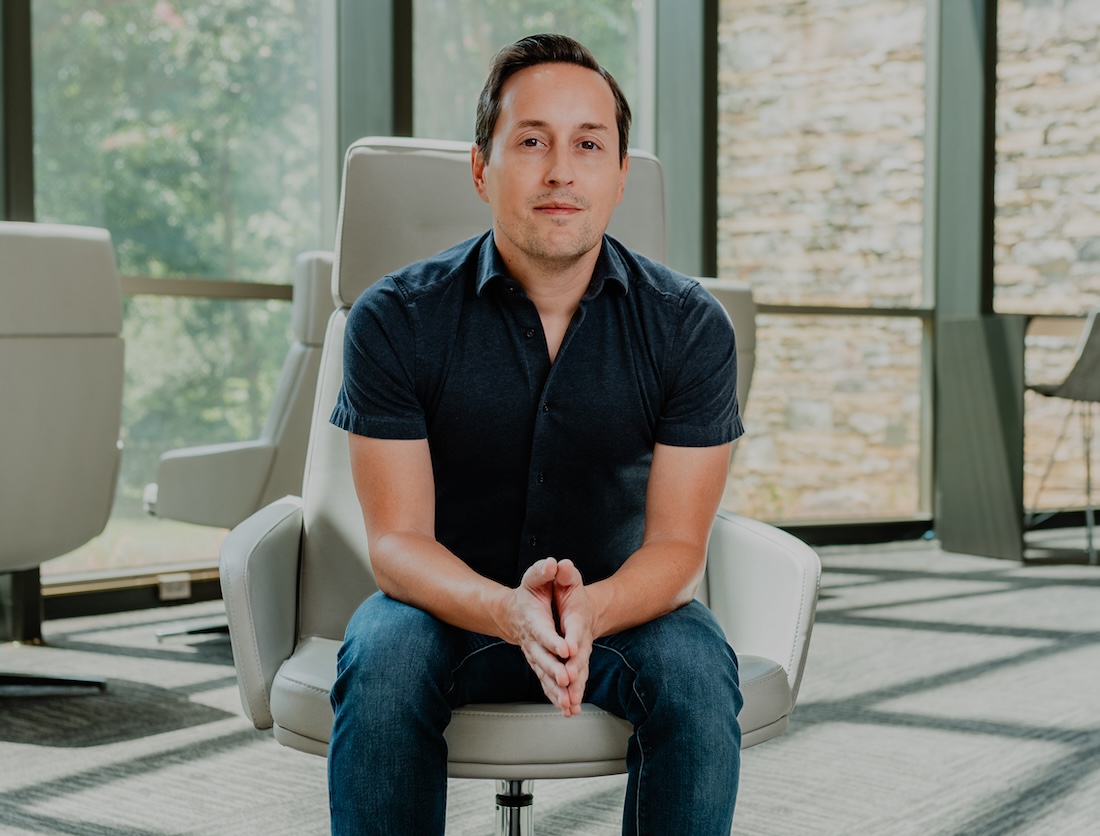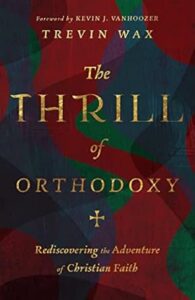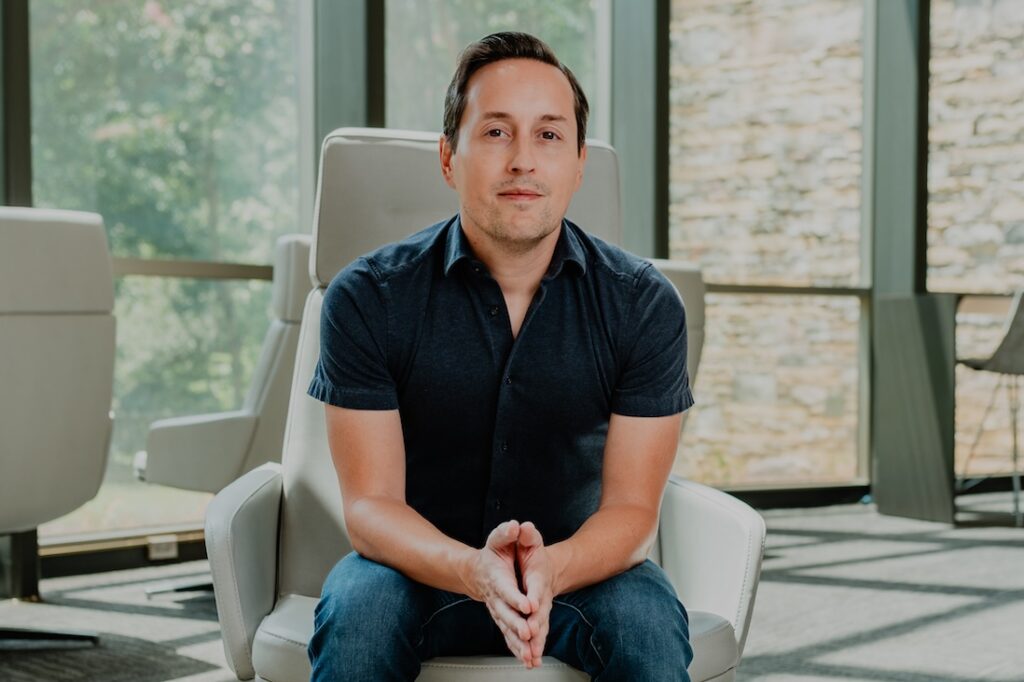ALPHARETTA, Ga. – There’s no disgust or anger when Trevin Wax talks about the church.
Instead, there’s compassion, a love for the followers of Christ.
“The institutional credibility of the church and of many leaders has taken such a hit in recent years,” Wax said, “and it can leave many Christians feeling dazed and disoriented as to the way forward.”
In his Reconstructing Faith podcast initiative, Wax, vice president of resources and marketing for Southern Baptists’ North American Mission Board (NAMB), aims to provide “something constructive for evangelicals who want to be part of contributing to the renewal and health of the church in the days ahead.”

Twelve episodes were produced for the inaugural 2022-23 season, 10 in the fall of 2023, and 11 more are ahead in 2025.
Among the topics addressed in the 50-60-minute episodes: institutional distrust, social media, pornography, burnout/stress, sexual abuse, gender, denominations, worship, families, race, politics and artificial intelligence.
Each topic includes interviews with “constructive voices who are doing their best to build toward a healthier future,” Wax said in email exchanges for this article.
He taps into thinkers from the church’s past, such as Augustine (354-430 A.D.) and C.S. Lewis (1898-1963).
Both seasons of Reconstructing Faith can be accessed here. Season 3 is set to begin on Jan. 23. See this article for a related story about the podcast.
Wax intends for the series to “encourage and equip those who are ready to roll up their sleeves and make a positive difference … to identify various aspects of the church’s witness needing restoration and rebuilding that they may feel a passion for tackling.”
“If we are to start putting the pieces back together,” Wax said, “we’ll need to be clear-eyed … and then courageous and determined.”
‘Thrill of Orthodoxy’
The theological underpinning for the Reconstructing Faith podcast is the latest of Wax’s 9 books, “The Thrill of Orthodoxy: Rediscovering the Adventure of Christian Faith.”
The 2022 book, across 240 pages, examines how “false teaching ultimately proves bland and boring, and that orthodoxy” – drawn from the summary of Scripture found in the church’s historic creeds – “is where true adventure can be found,” as described by its publisher, InterVarsity Press.
The element of church history in Reconstructing Faith serves “not as a map giving us turn-by-turn directions on what we should do and how we should live, but as a treasure box,” Wax said. “My love for church history has arisen from necessity, not just curiosity – that we must listen to the wisdom of our forefathers and mothers in the faith if we are to be faithful in our time.”
Augustine, one of Christianity’s most influential theologians, recounts in “Confessions” his journey “from a life consumed by worldly passions,” Wax said, “to one captivated by God, blending intellectual exploration with a deep longing for divine love.”
Lewis, a British scholar who came to faith at age 32, draws Wax’s appreciation “for the way he used his imagination and applied his historical and literary expertise in the service of truth,” often with “metaphors and analogies that sparkle still today and make the truth he describes come alive in the mind and heart of the reader.”
‘Electric connection’ in Romania
Wax’s varied life experiences also fuel “a love for the evangelical movement and its manifestations across the world.” It began with several church mission trips to Romania starting in 1997 at age 15, followed by a one-way ticket there in 2000 to attend Emmanuel University in the city of Oradea.
From the start, Wax sensed “an immediate, electric connection with believers in another part of the world … in getting to know Romanian pastors, church leaders, regular churchgoers, teenagers and kids … with very different customs, different worship styles and a different language.”
“I knew it was love for Jesus that was the source of that connection.”
Among Romanian Baptists who were “clearly a societal and cultural minority,” Wax added, “I heard the stories and saw the effects that suffering believers experienced during the communist era and also watched them wrestle with newfound freedom and increasing wealth.”
Of the late Romanian hymn writer Nicolae Moldoveanu, Wax said, “I couldn’t even begin to quantify the impact of his songs on my life – songs about God, the gospel, the church, the life of faith, perseverance through suffering.”
Among several thousand hymns that Moldoveanu wrote, many while in prison, Wax particularly remembers “Ţie-Ţi Cânt Dumnezeul Meu” (“To You I Sing My God”) after police had plundered his home and left him without any belongings.
“Imagine,” Wax said, “sitting in an empty room, having lost everything, and penning these words: ‘For all that you have given to me, for your sweet care, For all that you have taken from me, I worship you with thanksgiving.’”
While it’s important “to compose new songs and hymns from our own experience with the unchanging God,” Wax reflected, “it’s also important to hold on to the experiences of men and women in the past, to lift our voices and sing their songs, even if we’ve never known the challenges they faced or the suffering they experienced. We sing in communion with the saints who have gone before us.”
‘The best of our intentions’
After earning his university degree – and marrying his wife Corina (they now have two sons, ages 20 and 11, and a daughter, 16) – he returned to the U.S., earning a Master of Divinity from Southern Baptist Theological Seminary in Louisville, Ky., and a Ph.D. in applied theology with a focus on North American missiology at Southeastern Baptist Theological Seminary in Wake Forest, N.C.
His doctoral studies “stoked the flames of missiological thinking for worldwide mission and evangelism.” And it deepened his grasp of “the contribution of Baptists to the world’s understanding of church and state, the missionary fervor of our forefathers and mothers in the faith, and the vibrancy of congregations that take seriously the call to conversion and ongoing discipleship.”
While serving in local church discipleship roles for several years, Wax learned that contextualization “doesn’t mean just cross-cultural ministry in other countries or hipster church planting in affluent cities – it means knowing how to talk to older men who meet up at Hardees in the morning, or to walk with young married couples through the initial struggles of making a life together, or to provide biblical teaching that can be applied in day-to-day life.”
At Lifeway Christian Resources from 2010-2021, Wax served in various roles including senior vice president for theology and communications, director of Bibles and reference for the Broadman and Holman publishing imprint, which launched the Christian Standard Bible, and as founding editor of The Gospel Project, a multi-age small group and Sunday school curriculum focused on the centrality of Jesus throughout Scripture.
The Reconstructing Faith podcast’s interdenominational viability has drawn reactions from abroad and from a spectrum of U.S. Christianity, including, as Wax put it, “megachurch pastors, small-church pastors, charismatic preachers, twenty-somethings just now getting involved in ministry and Christian university students.”
“In some cases, people have pushed back on various aspects of the podcast,” Wax said, “but I’ve been very pleased with how they’ve pushed back – always with an eye toward construction, not just criticism. The people who are listening really care about the church, they assume the best of our intentions and offer their feedback as a way of strengthening and clarifying thought, not just scoring points or firing off complaints.”
Even so, Wax acknowledged, “The hard part of the church as a family of believers is bearing with your siblings through thick and thin, recognizing Jesus in them but also realizing they’re not Jesus. That’s the only way we can live and love as the family of God, without idealistic expectations crushing our spirits.”
Published January 21, 2025
